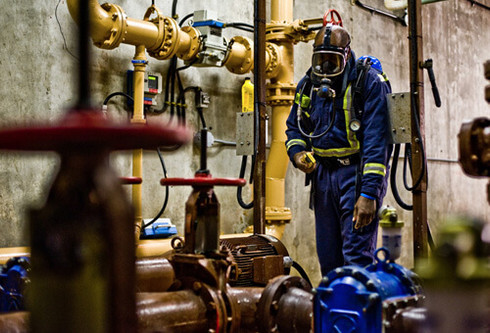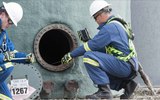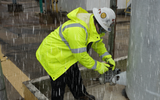Don’t Die in a Sewer
By Luke Laggis, Editor, Municipal Sewer & Water Magazine
Educate yourself and your crews, and take every necessary step to make sure no one becomes a victim.
Wastewater work is important. We champion the work you do in every issue of MSW. But no sewer line problem is worth dying over.
Accidents happen all the time. All too often they’re the result of shortcuts, of failing to take simple steps to protect yourself to save a little time. The industry is filled with stories of people who tried to save a few minutes and ended up losing the rest of their years. And if you push your employees to get jobs done faster than safe practices allow, you could lose plenty, too.
There is never an acceptable excuse to enter a sewer without a proper gas monitor, or to enter a confined space unattended or without the required gear. Earlier this year, those exact mistakes cost three Florida utility workers their lives.
As reported by local news outlets, when crew members noticed a section of a paved street wasn’t settling properly, one of the workers removed a manhole cover and climbed down to investigate. When workers on the surface lost contact with the first man, another went down to rescue him. Then another.
The story, along with a complete overview of how to protect yourself from the dangers of hydrogen sulfide, is detailed in this month’s Staying Safe column. You need to do whatever you can to protect yourself and your workers on the job. At the end of the day, the safety of your crew should be top priority. If it’s not, the end of the day — and someone’s life — could come all too soon.
No matter how safety-conscious you usually are, it only takes one lapse, one mistake, to change everything. That’s the thing about safety measures: They only keep you safe if you follow them 100 percent of the time. Accidents are often the result of little shortcuts, of failing to take simple steps in order to protect yourself to save a little time.
Those aren’t situations where you learn from your mistakes; they’re situations where you die from your mistakes. That might seem overly dramatic if you’re used to that kind of work and haven’t had any issues, but do a quick internet search on “sewer fatality” if you want a sobering reminder — page after page of people who didn’t take the proper precautions and paid the ultimate price.
Hydrogen sulfide can choke you out before you even know what’s happening. You probably don’t face that danger on a daily basis, but you no doubt face it at least occasionally.
You probably know that the gas has the distinct smell of rotten eggs, an obvious warning sign. But as it reaches higher concentrations, H2S paralyzes the olfactory nerve. You won’t smell it. You’ll just collapse and die.
Please take the time to read the Staying Safe column. Even if you’re familiar with all the information, the reminder is worthwhile.
The article was originally published in the Municipal Sewer & Water Magazine, September 2017.
Recent Posts
-
Promoting Safety: National Work Zone Awareness Week is April 15-19, 2024
Each year, the National Work Zone Awareness Week (NWZAW) places the spotlight on the importance o …Apr 11th 2024 -
Understanding 4 Gas Monitors: How They Work & Why They Are Important
In today’s increasingly dynamic industrial landscape, 4 gas monitors have emerged as critical com …Apr 8th 2024 -
April Showers Require Workers to Wear Hi-Vis Safety Rain Gear
While April showers bring May flowers, they also bring challenges, particularly for those working …Apr 1st 2024





